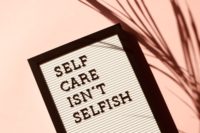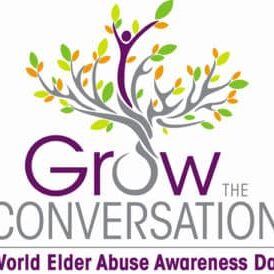Caring for anyone can be stressful. You may have heard that you need to take care of yourself or heard tired sayings about how you can’t pour from an empty cup or that you need to put on your own oxygen mask before helping others- but what does that mean? How can you realistically create a self-care routine?
Self-care is an important part of taking care of yourself, but it is especially important for caregivers. Caregivers often report that they put their own needs last, which results in sleep deprivation, poor eating habits, and putting off their own medical and health appointments.
Given their stressful jobs, caregivers can easily become burned out and experience a wide range of negative side effects ranging from irritability and fatigue to feelings of hopelessness and social isolation.
Below are tips to create a self-care plan:
Understand how stress affects you.
Stress feels different for everyone. One person might have headaches and nausea when they’re stressed, while someone else may suffer from insomnia. Know how stress feels in your body so you can recognize when you’re feeling overwhelmed. Then list the situations that lead you feeling stressed. This lets you come up with a plan.
Practice Self-Compassion
Let go of your inner critic and look for small victories. Remember, care-giving is tough, and you’re doing your best.
Make yourself a priority
Would you let the loved one you’re caring for get as little sleep as you’re currently getting? Eating well, exercising, and getting enough sleep are the basic building blocks of self-care. Research shows that chronic stress can lead to increased inflammation. Make sure to maintain regular doctor appointments for yourself.
Practice Relaxation
This could mean taking an hour-long yoga class or reminding yourself to do relaxing breathing exercises for ten minutes. Find what relaxes you and schedule time to do it each week.
Care-giving can feel isolating; it’s important to make time for friends and social activities- even if you have to schedule it. Talk to your friends and set up a recurring time to catch up, even if it’s over Skype or FaceTime.
Ask for Help
Support groups are amazing tools because they show you that you’re not alone. Many hospitals, Departments of Veteran’s Affairs, and nonprofits host support groups that are free or low cost and open to the community. Organizations such as the Alzheimer’s Association hold a variety of educational programs for caregivers caring for a loved one with Alzheimer’s or Dementia. Check the Ahead of the Curve Resource Directory for additional caregiver support programs. Additionally, do you have friends or family members with certain skills that could help you with care-giving? Make a list of what you need help with and where/who you can reach out to.






